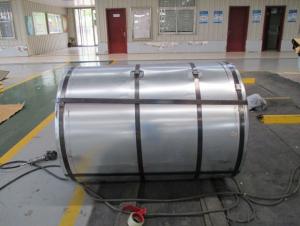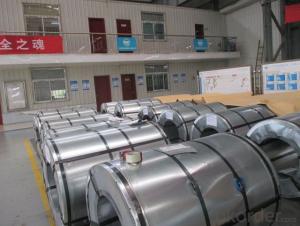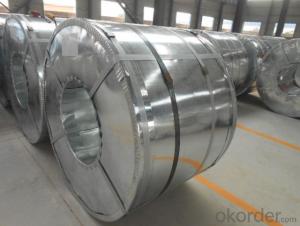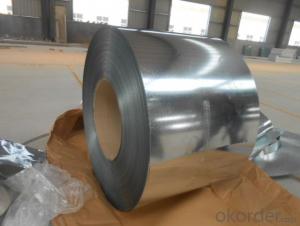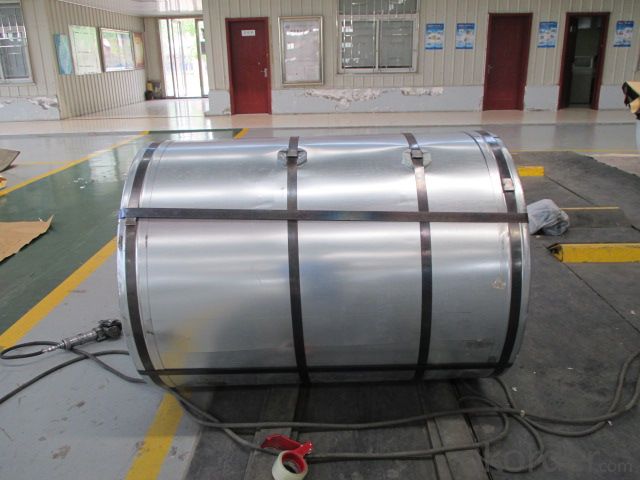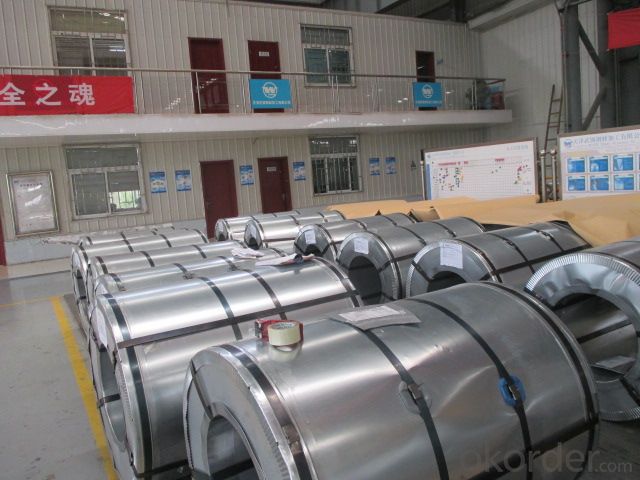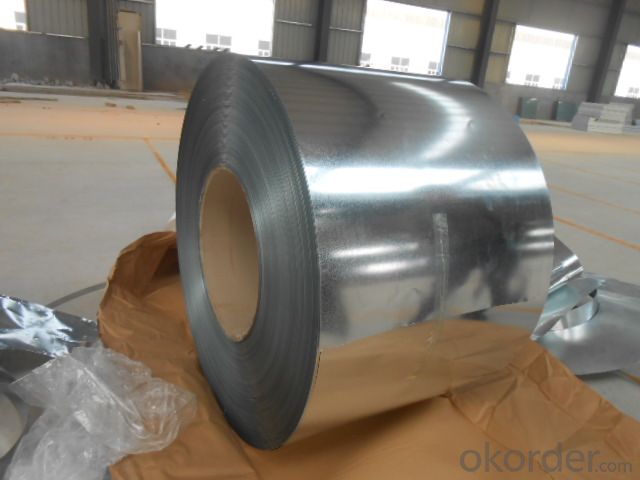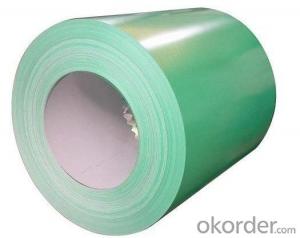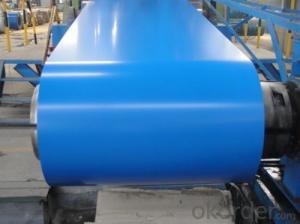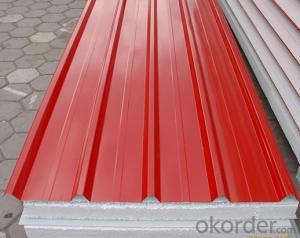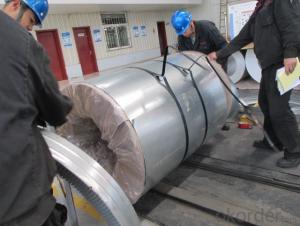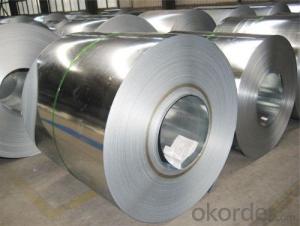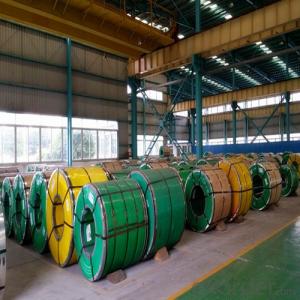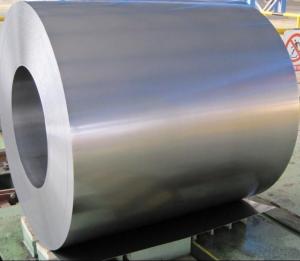STAINLESS STEEL COILS thickness 2.3mm
- Loading Port:
- China Main Port
- Payment Terms:
- TT OR LC
- Min Order Qty:
- -
- Supply Capability:
- -
OKorder Service Pledge
OKorder Financial Service
You Might Also Like
STAINLESS STEEL COILS
Packaging & Delivery
Packaging Detail: seaworthy export package
Delivery Detail: on request
Specifications
1. more than 10 years’ experience on this field
2. advanced equipments
3. competitive price
4. soonest delivery
Product Description :
Commodity
STAINLESS STEEL COILS
Technical Standard: Steel Grade &Standard:J1
Surface Treatment:NO.1
Hot rolled Annealed and Pickled(HRAP)
Grade: J1 , Prime quality
Mill Edge. No connection point in each coil.Component: Ni:1% , Cu: 0.65-0.9%, Cr: 13%, Mn: 10–12%, C: 0.09-0.12%
Package:Properly packed for ocean freight exportation in 20''container
Application::home appliances, constructions, building, machineries
Our Advantages :
1. Expertise:
More than 10 years of manufacture: we know how to properly handle every step of production.
2. Competitive price:
We can offer competitive prices to our customers.
3. Accuracy:
We have excellent technicians and leaders, which can ensure our products are exactly what you want.
4. Materials:
All steel coils are made of high-quality raw materials.
5. Certificate:
Our products are certified by ISO9001.
6. Productivity:
We have large-scales of production lines,, which can guarantee all your orders will be finished in earliest time.
The furnace heating style: improved Sendzimir heating technology
Hourly output: max.76.3t/h
Process after coating: tension leveling, Passivation or oiling
Our Service
Our quality
Test Equipments of Prepainted Galvanized Steel Coil : Salt-spray tester; Atomic absorption spectrophotometer; Rockwell typer hardness tester; Tensile test machine; Metrohm titration; Laboratory Bend test machine.
Our packing
Properly packed for ocean freight exportation in 20''container, galvanized metal fluted rings on inner and outer edges, galvanized metal & waterproof paper wall protection disk, galvanized metal & waterproof paper around circumference.
R&D department
R&D department concentrates on researching and developing reliable products with best quality. The quality department test and control every process of production to guarantee the best quality of product
- Q: - I'm considering doing my physics coursework on the uses of Mild Steel in skyscrapers and construction, would this be right? Some sources tell me mild steel is too weak, others say it is fine
- Mild steel doesn't really mean anything, technically. In today's world all steel is mild steel unless it's high carbon or alloy, which are mostly tool steels. You'll need to study steel much deeper than that to accomplish any real physics work relating to steel.
- Q: Im getting a new guitar soon, and it has steel strings. ive heard that nilon strings are better? thanks:)
- Nylon is allegedly better for beginners because they don't cut into the fingers as much. Steel sounds much better, though.
- Q: How are steel coils used in the production of steel hooks?
- Steel coils are used in the production of steel hooks as they serve as the primary raw material. These coils are unrolled and then undergo a series of processes such as cutting, shaping, bending, and welding to form the desired shape of the hook. The strength and durability of steel coils make them an ideal material for manufacturing steel hooks, ensuring they can withstand heavy loads and provide reliable support in various applications.
- Q: How are steel coils used in the manufacturing of automotive chassis?
- Steel coils are used in the manufacturing of automotive chassis as they are shaped and formed into various structural components such as frame rails, cross members, and support beams. These coils are cut, bent, and welded together to create a strong and rigid chassis structure, providing the necessary strength and stability for the vehicle.
- Q: How are steel coils used in the production of steel drums?
- Steel coils are used in the production of steel drums by being unwound and shaped into circular sheets. These sheets are then formed into the body of the drum, providing the necessary strength and durability.
- Q: What are the different types of steel coatings for coils?
- Coils can be coated with various types of steel coatings, each with its own unique properties and advantages. Some of the most commonly used coatings include: 1. Galvanized Coating: This type of steel coating is widely utilized for coils. It involves applying a layer of zinc to the steel, which provides excellent protection against rust and corrosion. It is particularly suitable for outdoor applications or environments with high moisture levels. 2. Galvannealed Coating: Galvannealed steel coating involves subjecting the galvanized steel to additional heat treatment, resulting in a matte finish and improved adhesion for paint. It offers enhanced corrosion resistance and is often preferred in the automotive and construction sectors. 3. Aluminized Coating: Coating steel coils with aluminum provides outstanding heat resistance and corrosion protection. Aluminized steel is commonly employed in exhaust systems and other applications involving high temperatures. 4. Organic Coatings: Steel coils can also be coated with organic materials like paints or powder coatings. These coatings offer additional protection against corrosion and can be customized to meet specific aesthetic requirements, available in a wide range of colors. 5. Tin Coating: Tin-plated steel coils are covered with a layer of tin, which provides excellent solderability and resistance to corrosion. This type of coating is frequently used in the production of cans and other food packaging materials. 6. Phosphate Coating: Phosphate coatings are often applied as a pre-treatment before other coatings to enhance adhesion and corrosion resistance. They create a thin, crystalline layer on the steel surface, facilitating better adhesion of paint or powder coatings. These examples illustrate the diversity of steel coatings available for coils. The choice of coating depends on specific application requirements, considering factors such as corrosion resistance, heat resistance, paint adhesion, and aesthetic preferences.
- Q: What are the different types of steel coil cutting tools?
- There are several different types of steel coil cutting tools available in the market. These tools are specifically designed to cut steel coils efficiently and accurately. Some of the common types of steel coil cutting tools are: 1. Slitting shears: Slitting shears are widely used for cutting steel coils into narrow strips. These shears have multiple blades that make clean and precise cuts without causing any damage to the material. They are typically used for high-volume production and can handle various thicknesses of steel coils. 2. Rotary shears: Rotary shears are another type of cutting tool commonly used for cutting steel coils. They consist of rotating blades that shear through the material as it passes through. Rotary shears are ideal for cutting medium to thick steel coils and are known for their high cutting speed and accuracy. 3. Guillotine shears: Guillotine shears are heavy-duty cutting tools that can handle thick steel coils. They work by using a downward force to cut through the material with a single clean stroke. Guillotine shears are known for their power and precision, making them suitable for cutting large volumes of steel coils. 4. Laser cutting machines: Laser cutting machines are advanced cutting tools that use a high-powered laser beam to cut through steel coils. They offer precise and intricate cuts with minimal heat distortion. Laser cutting machines are ideal for cutting complex shapes and patterns on steel coils. 5. Water jet cutting machines: Water jet cutting machines use a high-pressure stream of water mixed with abrasive particles to cut through steel coils. This method is highly accurate and does not generate heat, making it suitable for cutting heat-sensitive materials. Water jet cutting machines can cut through various thicknesses of steel coils and produce smooth edges. Each type of steel coil cutting tool has its own advantages and is suitable for different applications. The choice of tool depends on factors such as the thickness of the steel coil, required precision, production volume, and budget.
- Q: How do steel coils impact the overall cost of production?
- Steel coils can have a significant impact on the overall cost of production. The cost of steel coils is a major component in the production process, as they are used as raw materials in various industries such as automotive, construction, and manufacturing. Fluctuations in the price of steel coils can directly affect the cost of production, ultimately influencing the final price of the end product. Additionally, factors such as transportation and storage costs also contribute to the overall impact of steel coils on production costs.
- Q: who, when and where was dual phase steel invented?
- Looking okorder /... but I would note that this stuff seems an awful lot like the techniques that have been used for making high quality swords and cutting tools for thousands of years including the famed Damacas steel. In these, the steel is heated and slowly cooled (annealed) to produce the tough matrix, then the piece is reheated and quenched to produce the hard edge. What Dual-phase seems to do is bring the process to bulk manufacture.
- Q: What is the current value of steel? Is it expected to increase in value?
- The steel in steel cents is the same as the steel in soup cans you throw out all the time. There is no sense in holding steel cents for their value as scrap. There are way too many steel cents around for them to ever have much numismatic value.
Send your message to us
STAINLESS STEEL COILS thickness 2.3mm
- Loading Port:
- China Main Port
- Payment Terms:
- TT OR LC
- Min Order Qty:
- -
- Supply Capability:
- -
OKorder Service Pledge
OKorder Financial Service
Similar products
Hot products
Hot Searches
Related keywords
